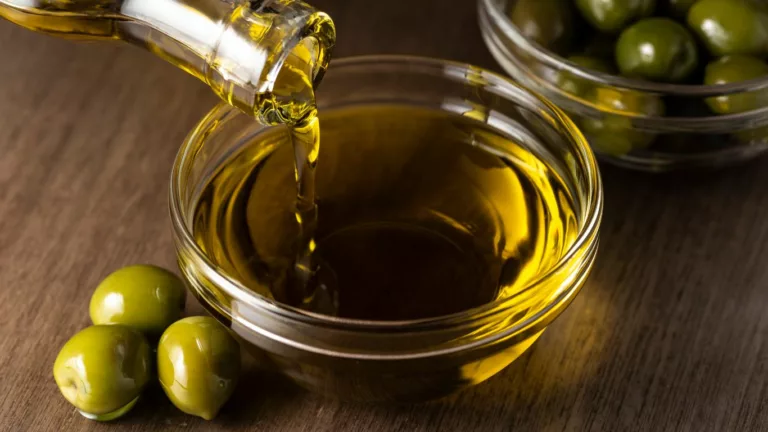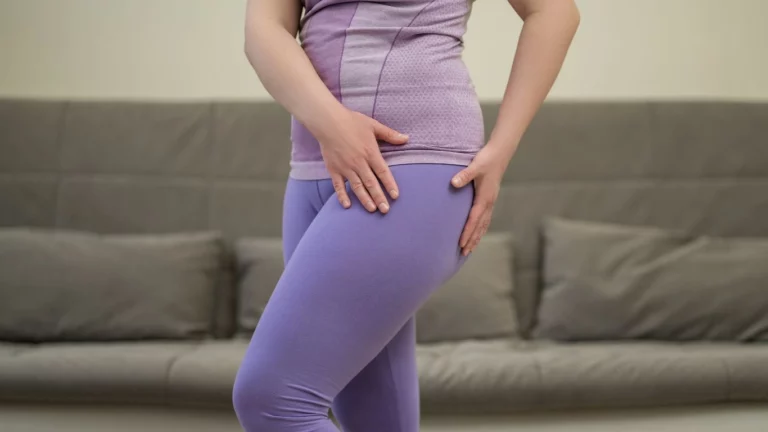How Drinking Water Triggers Acid Reflux – Avoid the Common Mistakes
If you’re like me, you probably don’t think twice about drinking water throughout the day. It’s the simplest way to stay hydrated, right? Well, as it turns out, something as harmless as drinking water could be triggering more discomfort than you might realize—especially for those dealing with acid reflux. Now, I know what you’re thinking: “How could something as basic as water cause acid reflux?” Trust me, I’ve wondered the same thing. As a Medical Assistant working in a Gastroenterology Clinic, I’ve seen many patients who are shocked to learn that their hydration habits could be linked to their acid reflux symptoms. In this article, I’ll break it down and share some insights from my experience, so you can make informed choices when it comes to managing acid reflux, even if it’s from drinking water.
Understanding Acid Reflux and How Water Plays a Role
Let’s start by getting clear on what acid reflux is. Essentially, it happens when stomach acid or bile flows back into your esophagus, the tube that connects your mouth to your stomach. This reflux can cause that all-too-familiar burning sensation in your chest—what we commonly refer to as heartburn. But acid reflux isn’t just about heartburn; it can also cause regurgitation, chest pain, coughing, and even trouble swallowing.
Now, where does water fit into all this? As odd as it sounds, drinking water can either help or worsen acid reflux symptoms, depending on a few factors. For starters, the temperature of the water, the amount you drink at once, and even your posture while drinking can have a significant impact on how your body reacts.
Does Drinking Water Really Cause Acid Reflux?
The short answer: It can. The longer answer: It depends on several factors, and there’s a bit more to it than simply saying “water equals reflux.” In fact, some studies suggest that in certain cases, water can actually soothe the symptoms of acid reflux. However, for some individuals, the act of drinking water can sometimes trigger reflux. Let’s take a closer look at how this happens.
How Does Water Affect Your Stomach and Esophagus?
Your stomach is lined with a thick layer of mucus that protects it from the acid it produces. When you drink water, especially in large amounts, it can dilute the stomach acid and, in some cases, cause the acid to flow back up into the esophagus more easily. Additionally, drinking too much water in a short period can increase the volume of liquid in your stomach, which may put extra pressure on the lower esophageal sphincter (LES). This muscle acts like a valve, opening to let food into the stomach and closing to keep acid from rising back up. If the LES is weakened or compromised, acid reflux can occur more frequently.
From my experience in the gastroenterology clinic, patients who drink large quantities of water during or after meals tend to experience worse reflux symptoms. It’s like the water gives the stomach more fuel to regurgitate the acid upwards. This is one reason why it’s important to pay attention to how much water you consume at once, especially if you’re prone to acid reflux.

What’s the Right Way to Drink Water for Acid Reflux?
So, if water can trigger reflux, does that mean you should avoid it altogether? Absolutely not! Water is essential for your overall health and hydration, and it’s not the enemy. Instead, it’s all about how and when you drink it. Here are some tips on drinking water in a way that minimizes the risk of acid reflux:
- Avoid drinking large amounts of water all at once. Instead of chugging a full glass in one sitting, try sipping water throughout the day. This helps prevent excess pressure on your stomach.
- Drink water between meals. It’s better to hydrate before or between meals rather than during, as drinking too much water during meals can increase the chances of acid reflux.
- Opt for room temperature water. Cold or very hot water can sometimes irritate the esophagus and stomach lining. If you notice that drinking cold water worsens your symptoms, try switching to lukewarm water.
- Maintain an upright posture while drinking. Don’t lie down or slouch while drinking, as this can make it easier for acid to flow back up into the esophagus. Try to sit up straight to avoid triggering reflux.
- Experiment with alkaline water. Some people find that drinking alkaline water, which has a higher pH level than regular water, helps neutralize stomach acid and reduce reflux symptoms.
When Drinking Water Becomes a Problem: Recognizing the Signs
While water is generally helpful for digestion, it’s important to recognize when it might be contributing to your acid reflux. If you’re drinking plenty of water and still experiencing heartburn or discomfort, it’s worth paying attention to the timing and amount of water you’re consuming.
One thing I’ve noticed in my clinical experience is that some people simply drink too much water, especially with meals. If this is you, try cutting back and spacing your water intake out throughout the day. Also, pay attention to how you feel after drinking water—if you notice that your symptoms worsen after hydrating, it may be time to adjust your water-drinking habits.

The Link Between Dehydration and Acid Reflux
It’s not just over-drinking water that’s an issue—under-hydration can also be a culprit. Believe it or not, dehydration can actually make acid reflux worse. When you’re dehydrated, your body may produce more stomach acid in an attempt to aid digestion, leading to an increased risk of reflux. Staying hydrated is key to balancing your stomach’s acid production and keeping your digestive system functioning properly.
In my work with patients, I’ve seen how dehydration often gets overlooked when considering the causes of acid reflux. If you’re dehydrated, you might be more prone to acid reflux episodes, even if you’re not consuming too much water at once. Ensuring that you drink enough throughout the day is essential to maintaining the delicate balance in your digestive system.

Can Your Water Temperature Affect Acid Reflux?
Now that we’ve talked about the amount and timing of water, let’s dive into something a lot of people don’t think about—water temperature. Believe it or not, the temperature of the water you drink can actually impact your acid reflux symptoms. You might not think it’s a big deal, but this small detail can make a world of difference when it comes to your digestive health. From my experience in the clinic, many patients are surprised by how much water temperature plays a role in their acid reflux.
Here’s the thing: extremely cold or hot water can be irritating to your esophagus and stomach lining. When you drink water that’s too cold or too hot, it can lead to an uncomfortable contraction of the muscles in your esophagus. This can make it easier for stomach acid to creep up into the esophagus, leading to a reflux episode.
For most people, room temperature or lukewarm water is the safest bet. It’s gentle on the stomach, doesn’t cause any contractions in your esophagus, and won’t trigger that reflux sensation. I’ve found that many patients who switch to room temperature water see a noticeable improvement in their acid reflux symptoms, so it’s worth experimenting with. If cold water tends to trigger your reflux, try warming it up just a bit.

The Role of Carbonated Water in Acid Reflux
If you’ve ever reached for a sparkling water or soda to quench your thirst, you might have noticed that it can sometimes trigger your acid reflux symptoms. Carbonated water can be a bit of a troublemaker when it comes to acid reflux. I’ve personally seen a lot of patients with reflux who love bubbly drinks, but unfortunately, the carbonation in sparkling water can cause bloating and increase the pressure in the stomach, making it easier for acid to flow back up into the esophagus.
The bubbles in carbonated drinks are filled with carbon dioxide gas, which, when consumed, can lead to belching. This burping may seem harmless, but it can actually push stomach acid back into your esophagus, triggering acid reflux. Additionally, the increased pressure on the LES (lower esophageal sphincter) from the gas can cause it to weaken, allowing acid to escape.
My advice? If you have acid reflux, it’s probably best to avoid carbonated drinks, or at least limit your consumption. Opt for still water or herbal teas instead. If you simply can’t live without your sparkling water, try sipping it slowly and in moderation to reduce the impact on your symptoms.
What About Flavored Water?
Flavored water sounds harmless, right? After all, it’s just water with a little extra flavor. However, there are some things to be aware of when it comes to flavored waters and acid reflux. Many flavored waters contain added citric acid or artificial sweeteners, both of which can be irritants for people with acid reflux. Citric acid, in particular, can lower the pH of your stomach and promote the flow of acid back into the esophagus.
If you enjoy flavored water, consider making your own at home. You can infuse still water with fruits like lemon (in moderation), cucumber, or berries. These options are much gentler on your stomach and won’t cause the same issues as store-bought flavored waters that often contain artificial ingredients.

Hydration and Its Impact on Your LES Function
One of the most important things to consider when managing acid reflux is the function of your lower esophageal sphincter (LES). This muscle controls the flow of food and liquid from your esophagus into your stomach and prevents stomach contents from coming back up. If your LES is weak or relaxed, acid reflux can occur more frequently.
But here’s the interesting part: hydration can actually affect the function of your LES. When you’re dehydrated, your body might not produce enough saliva, which helps to keep your esophagus clear of stomach acid. Dehydration also reduces the efficiency of the LES, making it more likely for acid to escape into the esophagus. Staying well-hydrated, however, can help keep your LES functioning properly and prevent acid reflux episodes.
From my clinical experience, patients who struggle with acid reflux often don’t realize that they are dehydrated. Dehydration can lead to a number of issues, including dry mouth, reduced saliva production, and a weakened LES. I always encourage my patients to drink plenty of water throughout the day—not just when they feel thirsty. Regular hydration helps maintain the smooth function of your digestive system, which in turn can reduce the frequency and severity of acid reflux.
How Much Water Should You Be Drinking?
So, how much water should you actually drink to keep acid reflux at bay? Well, it varies from person to person, but a good rule of thumb is to drink around 8 glasses (64 ounces) of water per day. However, if you’re active or live in a hot climate, you might need more to stay properly hydrated. Just make sure that you’re sipping consistently throughout the day and not chugging large amounts at once.
If you’re not sure whether you’re drinking enough water, pay attention to your body’s signs. Thirst is an obvious one, but also keep an eye on your urine color—it should be light yellow, not dark. If your urine is dark, it’s a sign that you need more water.

When to Seek Medical Advice About Your Acid Reflux
Although water and lifestyle changes can play a huge role in managing acid reflux, there are times when professional help is needed. If you’ve tried adjusting your hydration habits, diet, and other self-care methods but still find yourself struggling with frequent or severe acid reflux, it might be time to consult a healthcare provider. As someone who works closely with patients in a gastroenterology clinic, I’ve seen how important it is to seek proper care when acid reflux starts to disrupt your life.
Here’s when you should definitely consider seeing a doctor:
- If your acid reflux symptoms are severe or frequent. If you’re experiencing symptoms more than twice a week, it’s a sign that your acid reflux may not be under control.
- If over-the-counter medications aren’t providing relief. Persistent symptoms despite using antacids or proton pump inhibitors (PPIs) could be a sign that you need a stronger treatment plan.
- If you’re experiencing difficulty swallowing or a feeling of food getting stuck in your throat. These could be signs of complications like esophageal strictures or even Barrett’s esophagus, a condition linked to chronic acid reflux.
- If you have chest pain or discomfort. While it’s often mistaken for heartburn, severe chest pain could indicate a more serious condition, including a heart attack, so it’s always a good idea to have it checked out.
Don’t be afraid to speak up if your symptoms feel out of control or if you’re not getting the relief you need. Acid reflux can worsen over time if left untreated, and a healthcare provider can help determine the best course of action for you.

References and Resources for Managing Acid Reflux
When it comes to acid reflux, there’s a lot of information out there. It can sometimes be hard to sift through everything and know what’s trustworthy. To make your search easier, here are a few reputable resources where you can find more information about managing acid reflux:
- Health.com – A trusted source for health tips and expert advice.
- National Institutes of Health (NIH) – For the latest research and information on digestive health.
- American Gastroenterological Association (AGA) – Provides in-depth resources on gastrointestinal health, including acid reflux and GERD.
- Mayo Clinic – Offers helpful guides on symptoms, treatments, and prevention of acid reflux.
These sites are reputable and provide reliable information, backed by scientific research and expert medical opinions, so you can trust that you’re getting accurate details to help manage your symptoms.
Additional Lifestyle Changes to Prevent Acid Reflux
In addition to staying mindful of how and when you drink water, there are other lifestyle changes that can help prevent acid reflux from flaring up. As I’ve seen in my years as a Medical Assistant, these adjustments are just as important as hydration. It’s all about creating a holistic approach to managing acid reflux that works for your body.
Here are a few other changes to consider:
- Maintain a healthy weight. Excess weight can put pressure on the stomach and the LES, which can worsen acid reflux. Even losing a small amount of weight can make a significant difference in your symptoms.
- Elevate the head of your bed. If you tend to experience acid reflux at night, try elevating the head of your bed by about 6-8 inches. This can help prevent stomach acid from flowing back up into your esophagus while you sleep.
- Avoid tight clothing around your abdomen. Tight belts, waistbands, and other clothing that puts pressure on your stomach can trigger acid reflux.
- Quit smoking. Smoking can weaken the LES and increase the production of stomach acid, making acid reflux symptoms worse. Quitting smoking can improve your overall health and digestive function.
- Eat smaller, more frequent meals. Large meals can overwhelm the stomach and increase the chances of acid reflux. By eating smaller meals throughout the day, you reduce the pressure on your stomach and lower your risk of reflux.
Incorporating even a few of these lifestyle changes can complement your efforts to manage acid reflux and help you feel better overall. I’ve seen firsthand how making small adjustments can lead to significant improvements in a person’s symptoms, so don’t hesitate to give them a try!
Disclaimer
The information provided in this article is for general informational purposes only and is not intended to replace professional medical advice, diagnosis, or treatment. Always seek the advice of your physician or another qualified health provider with any questions you may have regarding a medical condition. Never disregard professional medical advice or delay in seeking it because of something you have read in this article.
If you are experiencing severe or persistent symptoms of acid reflux, it’s important to consult with your healthcare provider for an accurate diagnosis and personalized treatment plan.


Camellia Wulansari is a dedicated Medical Assistant at a local clinic and a passionate health writer at Healthusias.com. With years of hands-on experience in patient care and a deep interest in preventive medicine, she bridges the gap between clinical knowledge and accessible health information. Camellia specializes in writing about digestive health, chronic conditions like GERD and hypertension, respiratory issues, and autoimmune diseases, aiming to empower readers with practical, easy-to-understand insights. When she’s not assisting patients or writing, you’ll find her enjoying quiet mornings with coffee and a medical journal in hand—or jamming to her favorite metal band, Lamb of God.






